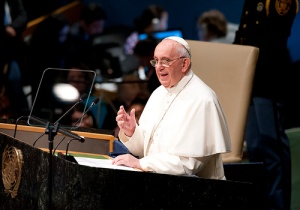
As promised, today’s focus is on characteristics of healthy leaders. While not perfect, I’ve tried to fit characteristics neatly under a few general categories. These thoughts reflect my personal experience and what I’ve learned from others. Here we go with characteristics of healthy leaders:
- A Servant’s Heart: Only people capable of serving are capable of leading. Servant leadership emphasizes collaboration, trust, empathy, and ethical use of power. Servant leaders will not ask subordinates or volunteers to do anything they themselves are unwilling to do. Servant leaders lead by example and are humble about their position. They look to the example of Jesus, who came not to be served, but to serve.
- Trustworthiness: Trust is the basis for all relationships. To be trusted, leaders must be trustworthy. Trust is built over time but can be destroyed in an instant. A huge element of trust is follow-up and follow-through. Keeping promises builds trust. Leaders won’t be trusted until they show by attitude and conduct that they trust others.
- Humility: “Pride goes before destruction and a haughty spirit before a fall.” Prov. 16:18 Humility is a necessary requisite for healthy, successful leaders. Leaders who take all the credit for themselves and do not understand the necessity of giving credit for success to co-workers will soon be resented by those they are trying to lead. Humble leaders find joy in authentic self-deprecation and genuine, generous affirmation of others.
- Integrity: Leaders lacking integrity say one thing and do the opposite. Leaders having integrity not only talk the talk, they also walk the walk, saying and doing privately what they say and do publicly. They communicate frankly and truthfully, regardless of their audience. Healthy leaders behave in a manner consistent with the image they portray.
- Transparency: Healthy leaders are open and vulnerable with those they lead. Leaders are responsible for defining reality, even when doing so calls for delivering bad news. Successful leaders cannot ignore the truth in an effort to make themselves look good but must speak the truth even when doing so is personally painful or politically inexpedient.
- Delegation: Great leaders are not indispensable and can’t succeed alone. Excellence is a team sport. Leaders can get more done if they share the burden through delegation. Healthy leaders trust people enough to delegate significant responsibilities to those who are qualified for the task. Delegation includes oversight but not micro-management.
- Courage: Healthy leaders almost always disappoint someone when diagnosing problems and taking steps to resolve them. Doing so almost always involves an element of risk. Healthy leaders are not afraid to take risks, but have the courage to act, not foolishly but wisely, after careful calculation and intentional evaluation of risk and reward.
- Prayer for Wisdom: The Bible says a lot about the power of prayer and the importance of praying for wisdom. God granted wisdom to Solomon, who didn’t ask for possessions, wealth, honor, or the death of his enemies. Solomon did not even ask God for long life. Healthy leaders pray, especially for others. They also pray, fervently, for wisdom.
- Conclusion: Healthy leaders are not always born leaders but earn their way into positions of responsibility and authority, by God’s grace. Successful healthy leaders inspire their followers through integrity, hard work, courage, faith, humility and confidence in God’s guidance.
God bless healthy leaders! May their number increase!

